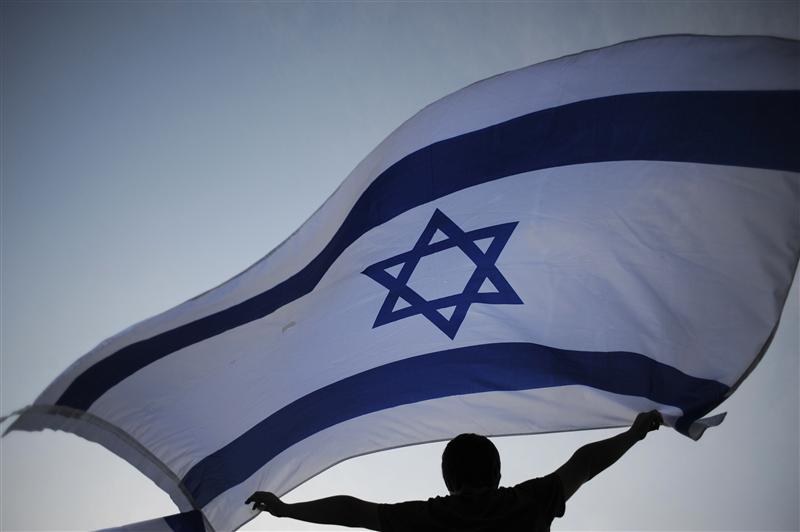Latest NEWS
- Aswat Masriya, the last word
- Roundup of Egypt's press headlines on March 15, 2017
- Roundup of Egypt's press headlines on March 14, 2017
- Former Egyptian President Hosni Mubarak to be released: lawyer
- Roundup of Egypt's press headlines on March 13, 2017
- Egypt's capital set to grow by half a million in 2017
- Egypt's wheat reserves to double with start of harvest -supply min
- Roundup of Egypt's press headlines on March 12, 2017
Israel takes cautious approach to Mursi's ouster

Israeli flag - Amir Cohen/Reuters
By Jeffrey Heller
JERUSALEM, July 4 (Reuters) - Israel's government avoided any show of satisfaction on Thursday over the ouster of Egypt's Mohamed Mursi, an Islamist president who alarmed many in the Jewish state but quickly made clear he would not renege on a peace treaty.
A spokesman for Prime Minister Benjamin Netanyahu declined to comment on Mursi's removal by the Egyptian army. But a Netanyahu confidant, Tzachi Hanegbi, expressed hope the appointment of Adli Mansour would lead to the restoration of largely frozen contacts with the Cairo government.
Hanegbi, a member of Netanyahu's Likud party and of parliament's foreign affairs and defence committee, hailed what he described as continued good ties with Egypt's armed forces.
That cooperation has stemmed largely from shared concern over a threat posed by Islamist militants in the Sinai peninsula bordering Israel and the Palestinian Gaza Strip.
"There had been legitimate doubts (that a 1979 peace treaty with Egypt would hold) because in the past year Mursi, in a very harsh manner, broke off all diplomatic contacts with Israel," Hanegbi told Army Radio, describing the first peace treaty between an Arab country and Israel.
"Yesterday's events strengthen the feeling that perhaps we have passed the bad period and perhaps now there will be a chance to have diplomatic ties with whoever will govern Egypt in the near future," Hanegbi told Army Radio.
Asked on Israel Radio whether Israel's leaders were pleased with the Egyptian military's move against Mursi, Giora Eiland, a retired general and former Israeli national security adviser, said: "I think so. Of course, they cannot say so."
Palestinian President Mahmoud Abbas, who holds sway in the occupied West Bank, offered praise for the Egyptian army, saying it had preserved security, and congratulations to Mansour.
For all of Israel's doubts about Mursi, he made clear soon after his election the peace accord was safe and Egypt, a major recipient of U.S. aid, would abide by international treaties.
Israeli commentators also noted Egypt's key role in brokering a ceasefire in an eight-day Gaza war in November between Israel and the Islamist Hamas group that rules the territory. Hamas is an offshoot of the Muslim Brotherhood, which calls Israel a racist and expansionist state.
During Mursi's presidency, Gazans have been disappointed by Egypt's intensified crackdown on tunnels running under the border with the Sinai, a network used to smuggle arms and goods. (Additional reporting by Noah Browning; editing by Elizabeth Piper)










